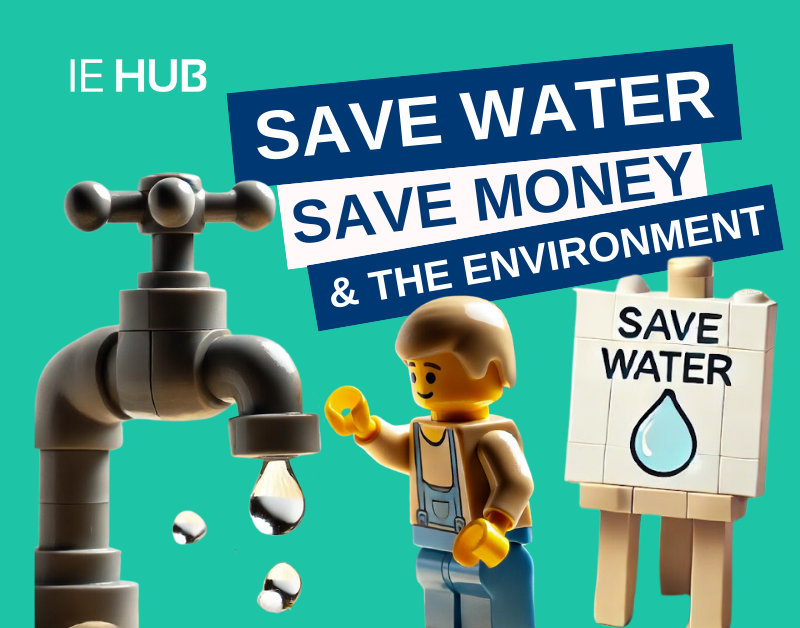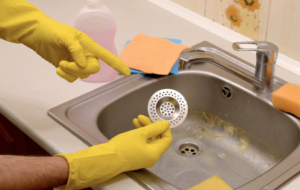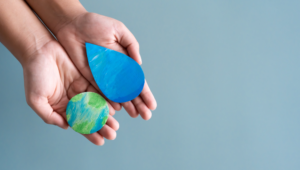
29 Aug
Save Water, Save Money & the Environment – Make a Positive Splash for Your Wallet and the Planet
Cutting down the amount of water we use around the house can be challenging. In trying to save on our bills, we often overlook how saving water can help us save money.
It’s not as simple as turning off a light switch. Water saving methods are a lot less obvious. But, these tips can save you money and help the planet in ways you never imagined.
We’ll share the most creative, effective tips. They’ll make you think, “I’ve never thought of that!” and inspire you to find new ways to save water in your daily life.
To listen to a full podcast on understanding and helping with your water bills, listen to Pocket Perspectives Podcast S3E12
Why Should I Save Water?
We all know that saving water is important, but did you know it can also save you money? Let’s look into why cutting down on water usage really counts.
Reducing Water Usage, Reduces Your Bill
The less water you use, the less you pay… if you’ve got a water meter. You most likely already have one, but if not let’s talk about why you should. We’ll tell you how to go about getting one too.
Why should I switch to a Water Meter?
If you’ve got a water meter, you pay for the amount of water you use. This is not the case for homes without a meter. If you don’t have a water meter, you will pay a set amount, no matter how much water you use. Typically, you can contact your water company and get a water metre installed for free – but this might depend on your property.
If your company finds it’s too difficult or too expensive to install a water meter, they should offer you an “assessed charge“. This means they’ll estimate how much your water bill would be if you had a meter.
How will I be billed with a Water Meter?
Unmetered Customers (No Meter) – If you don’t have a water meter, your local water company will likely set a pre-paid monthly payment. This payment is made up of a fixed standing charge (a set amount you pay no matter what), plus you’ll be charged on the rateable value of your property. This rateable value is like a score your property gets based on things like its size and location, and the rent value of the property
Water Meter – If you have a water meter, you’ll pay a standing charge (a fixed amount each month), plus a usage charge that varies with your water use. This shows a direct, immediate change in your water bill as you use less water. It also lets you track your water and money savings.
Saving Water, Saves the Environment
We know reducing the amount of water helps the planet, but why exactly is that? It’s for more reasons than you’d expect, let’s dive into them.
Protecting Plants and Animals
When we use less water at home, we help protect the natural sources- where our water comes from.
Did you know that 70 per cent of the UK water supply comes from freshwater sources, like rivers and lakes?
These places are homes to many plants and animals, so it’s important to protect them by using less water
Saving Energy, Our Air & Our Resources
The water the comes to our homes has to be cleaned and treated before we can use it. This process uses a lot of energy.
By reducing the amount of water we use, we reduce the amount of energy needed to treat the water that is supplied to us.
It means fewer greenhouse gases, which are harmful gases that make our air dirty, in our atmosphere. We’ll have cleaner air and a brighter future for our environment!
Also, by using less water at home, we can focus on other areas in need. Such as: the economy, education, transport, public health, and more.
Protecting Our Water System
Could you imagine paying a £1,000 fine for using your hosepipe? That’s the reality in some places in the UK during water shortages. Hosepipe bans occur to maintain enough water for day-to-day use, when supply can’t meet demand. They can impact our quality of life.
When it doesn’t rain enough and it’s too hot, our water reservoirs (places where water is stored) don’t have enough water. This puts a lot of pressure on the companies that supply our water.
To make matters worse, we use more water in these hot periods. We need it to stay hydrated, cool down, or fill our paddling pools. So by reducing our water use, especially in summer, we support our water system. It ensures we all have access to the water we need.
How Do I Save Water?
Let’s go through some tips and tricks. We’ll start with what you likely already do. Then, we’ll move to more creative solutions.
You’ll feel great! You’re saving money and helping the planet!
Our 17 Water Saving Tips!
🪥Turn off the tap when you brush your teeth.
🚿Take shorter showers (Tip: time yourself with a timer or music! Try Yorkshire Water’s 4-minute song challenge)
🧼When washing your hands, turn off the tap as you lather the soap.
🫧Use a washing-up bowl instead of keeping the water running.
💧Get your FREE Water-Saving Tools – Water providers such as United Utilities, Yorkshire Water, Essex & Suffolk Water, Northumbrian Water, Wessex Water & Bristol Water offer customers a range of tools to help reduce water usage, free of charge.
🛡️Protect your pipes from blockages. Don’t pour oil down the drain. Be careful what you flush down the toilet. Use sink strainers, hair catchers, or GunkPots for oil. These are available for FREE from Wessex Water and other water suppliers.

🚽Flush your toilet better – “if it’s yellow, keep it mellow. If it’s brown, flush it down.”
👚Wash smarter—less often with bigger loads, and use eco mode if your washing machine has it.
🍽️If you have a dishwasher, put it on less often with bigger loads.
🚗Wash your car with a bucket and sponge rather than a hose.
🧑🍳Re-use cooking water. It could be pasta water or water from boiling veg. Use it to water your plants or make gravy. Be efficient and creative!
🌡️Use a “warm-up” bottle. Collect the tap water as you wait for your water to warm up. Use it to drink from (put it in the fridge if you prefer it cold).
🍵Boil the amount of water you need for your hot drinks, it saves on your water and energy.
Eco-Gardener (For the Plant-Owners)
🌧️Collect rainwater to water your houseplants and garden. Use shed gutters that run into rain barrels/ water butts to get more. (or make your own DIY Mini Water butt)
🪴Water your plants wisely. Water in the early morning or late evening. Less water will evaporate and go to waste.
🐟Use fish-tank water to water your plants – it’s packed with nutrients.
🌱If you have plants, use mulch around the plants to keep moisture.
Save on Your Water Bills with Water Social Tariffs
Did you know that you might be able to get your water bills reduced with something called a water social tariff?
These tariffs are special discounts offered by water companies to help people who are struggling to pay their bills. They can make a big difference, especially if you’re on a low income or have other financial difficulties.
The good news is that IE Hub’s free benefits checker can help you find out if you qualify for a water social tariff.
It’s super easy to use—just create an account, and fill in our online form. At the end of the journey, you will be able to check for benefits and see if you’re eligible for a discount on your water bill.
It’s a quick way to save some money, so why not give it a try?
Summary of How to Save Water!
You can save money and the environment by: using less water, reusing wastewater, and getting creative with it!
We hope this blog inspires you to find ways to save water at home. Use your knowledge to help yourself save money and the planet!
